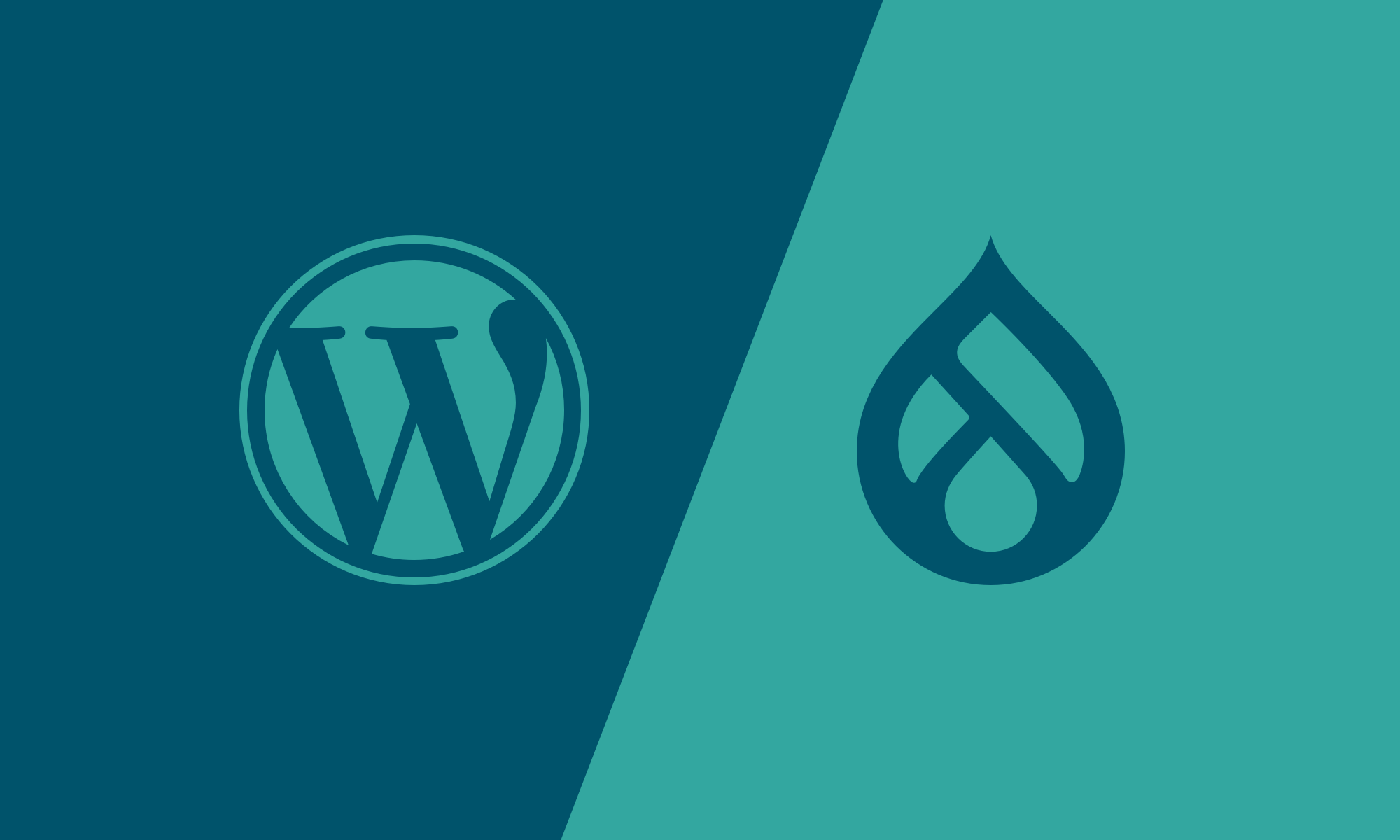CMS Showdown: WordPress vs. Drupal
You will find this blog post helpful if you think WordPress and Drupal are the same or struggle to choose the best CMS platform for your website needs. We're here with a CMS Showdown between two of the most popular Content Management Systems (CMS): WordPress vs Drupal.

At first glance, you might say that WordPress and Drupal are similar; why does it even matter? They’re both CMS, pretty popular, and free open-source, so they should be able to do the same things — right?
Wrong!
We’re not here to talk trash about either CMS, of course. But, there are some areas where one has a clear advantage over the other. And really, they can both be great for different needs!
WordPress is a very popular CMS
WordPress is most well-known for being a simple way to create your website, especially for blogging. It is designed to be simple and easy to use and has a lot of free options to make it accessible to everyone, even if you have no CMS experience. Launched as a blogging platform in 2003, WordPress has grown to power 43.3% of all websites. Some big names, like whitehouse.gov and The New Yorker, use WordPress.
Drupal is a very flexible CMS
Drupal is recognized as an extremely flexible and customizable platform. It focuses on innovation at its forefront and features sophisticated tools and features to enhance the digital experience. First launched in 2000, Drupal has been around even longer than WordPress. Its trusted security features make big names like Harvard, BBC, and NBC News use Drupal CMS for their websites!
Let’s not let the name drops impact our judgment here!
What are the Advantages of Each CMS?
Here’s the lowdown on both CMS — advantages, disadvantages, and when you should use them.
4 Advantages of WordPress
- User-friendly and easy to use, especially for non-developers.
- Easy access to support because of its popularity. Someone has probably already asked the question you have! 'Simple installation with their 5-minute installation process.
- Many “out of the box” options that are ready to go without extra development.
4 Advantages of Drupal
- More flexible custom content types and views than other CMS.
- Drupal prides itself on its security strength with regular patches to fix any issues ASAP.
- The active community and Marketplace mean you can always find someone to help you with any questions.
- Drupal provides step-by-step tutorials for everything you need to know, from starting your site to customization and updates.
What are the Disadvantages of Each CMS?
4 Disadvantages of WordPress
- Generally weaker security. WordPress sites are frequently targeted by hackers looking for security holes (and there usually are some).
- Not a lot of built-in plugins. You’ll likely need to look at third-party plugins if you’re looking for additional features, which could lead to additional costs.
- Customization is more complex and requires coding knowledge, which isn’t user-friendly for people without coding knowledge.
- Slower page load times compared to Drupal; a few seconds can make a huge difference for people visiting your site!
4 Disadvantages of Drupal
- Not as beginner friendly and will at least require some basic HTML, CSS, and PHP knowledge.
- A little more complicated process to add plugins and extensions may scare some beginners.
- Not specifically made for blogging, so the process isn’t as seamless as WordPress.
- Not a lot of theme options with free access compared to WordPress.
Key Takeaways
As you can see, WordPress and Drupal both have their pros and cons. The two are similar in their functions, and which might be better suited for you depends on your website's needs. Typically, WordPress is recommended for small-to-medium-sized start-up businesses, for example, a business with less than 100 employees. Because of the easy use and simple themes, it’s also recommended for people that don’t have a lot of developing and coding knowledge or people who don’t have the resources to take on that development and coding work.
On the other hand, Drupal is recommended if your site requires more complex customizations and integrations like apps. Drupal is generally known for being better protected in terms of security, so if you want a site that feels secure without worrying about security issues, Drupal is the CMS for you. On top of that, because of the great flexibility and functions of Drupal, it’s the better choice for more complex, content-heavy sites with higher traffic. Plus, Drupal easily connects with cloud hosting service and digital experience platform, Acquia, which allows for even more features and tools on top of the Drupal features. Drupal also prides itself on being adaptable for websites and businesses of all sizes, with themes and options that work for whatever your needs may be.
Conclusion on WordPress vs Drupal: Which CMS is Better?
The bottom line is: Drupal is a more flexible and secure option with more capabilities than WordPress. If you can choose Drupal, you should. From planning and development to website maintenance, Symetris can help Let’s talk!